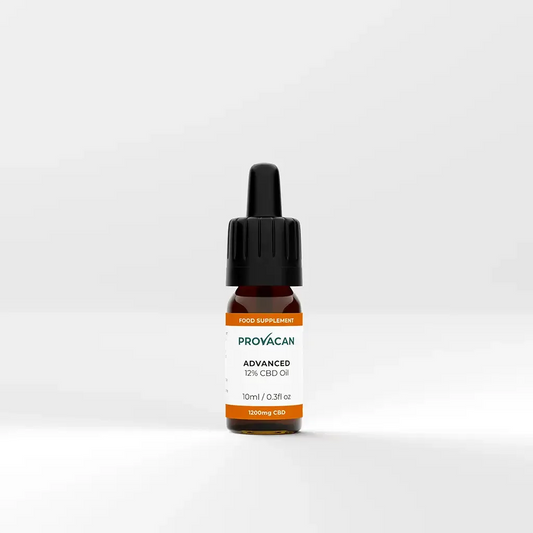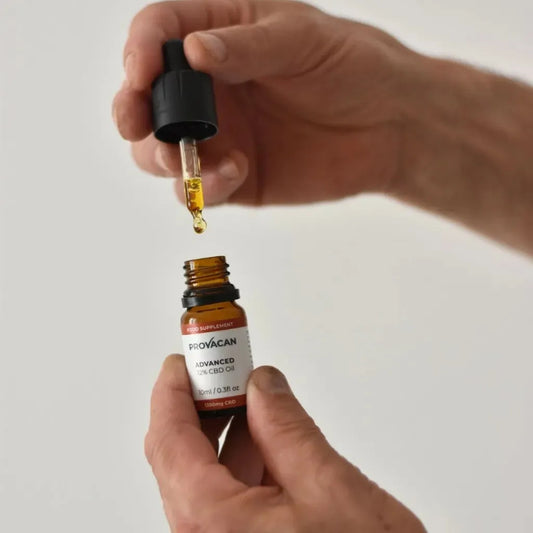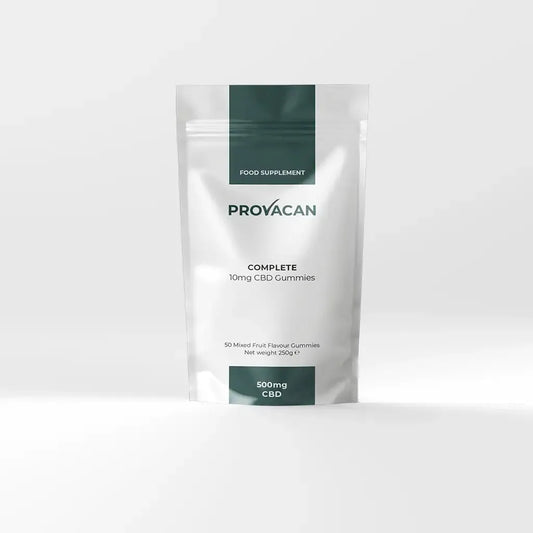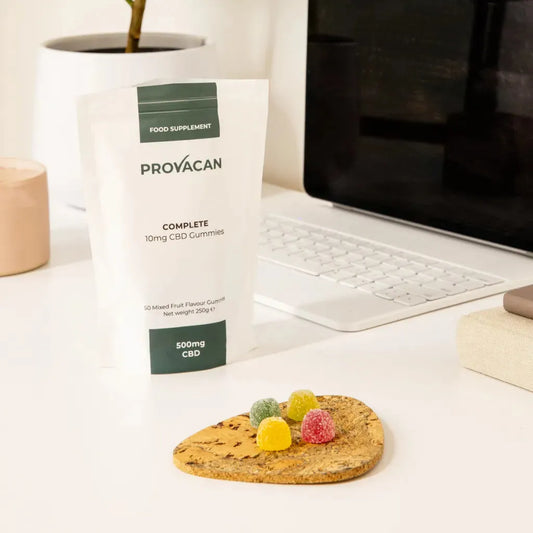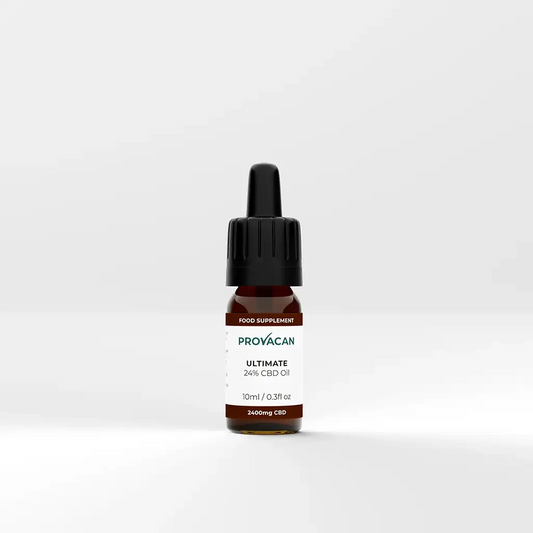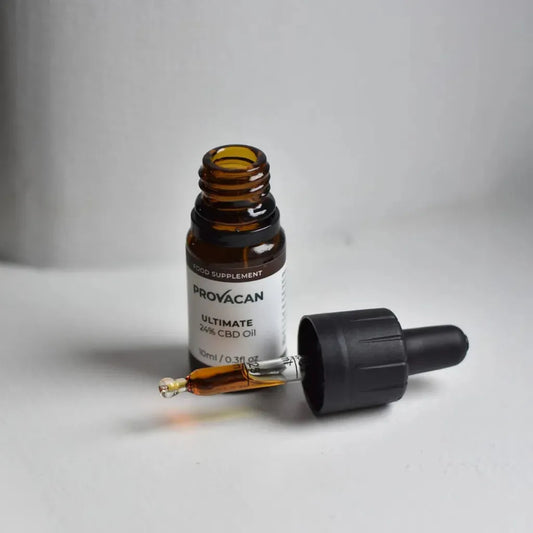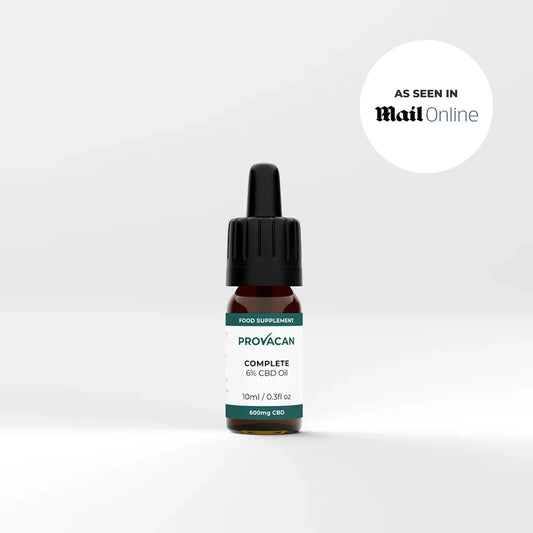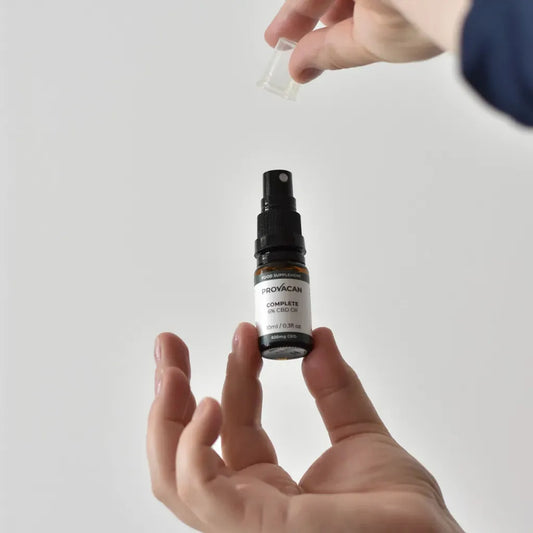Key takeaways:
- CBD may help regulate appetite and cravings: By interacting with the endocannabinoid system and modulating hormones like cortisol and serotonin, CBD may help reduce stress-induced cravings and support appetite regulation.
- Individual responses to CBD vary: The effects of CBD on appetite can differ between individuals. Some may experience reduced cravings and hunger, while others might find that it has little impact or even increases appetite.
- Potential side effects of CBD: While generally safe, CBD can cause mild side effects such as fatigue, dry mouth, dizziness, or gastrointestinal discomfort.
It’s real.
Cannabidiol (CBD) possesses potential therapeutic benefits – namely, easing stress, anxiety, discomfort, and even sleep disorders. However, one area of interest that sparks great curiosity is its effect on appetite and cravings.
In this article, we’ll examine whether CBD increases appetite, and if it does, what the science says, and how products like Provacan CBD oils, capsules, and sprays might help you manage appetite and cravings.
Understanding the Endocannabinoid System (ECS)
The Endocannabinoid System is a complex network of receptors, enzymes, and endocannabinoids found throughout the body. It plays a critical role in regulating several physiological processes, including mood, sleep, immune function, and hunger.
The ECS consists of two primary types of receptors: CB1 and CB2. CB1 receptors are primarily located in the brain and central nervous system, while CB2 receptors are mainly found in peripheral tissues, such as the immune system. The activation of these receptors can influence various functions, including food intake.
Endocannabinoids are naturally occurring compounds that bind to these receptors, helping the body maintain balance or homeostasis. Though not an endocannabinoid, CBD interacts with the ECS to modulate its activity, which can affect appetite regulation.
CBD and appetite: The science behind it
Research on CBD’s impact on appetite is still in its early stages. While the findings are promising, much more investigation is needed to fully understand how CBD influences hunger and cravings. However, a few key studies and theories suggest that CBD may have a role in appetite regulation.
1. CBD and the CB1 receptor
The CB1 receptor has been closely linked to appetite regulation. When activated, it can stimulate the release of hunger-inducing signals in the brain. This is why the activation of CB1 receptors is often associated with increased appetite—an effect commonly referred to as "the munchies," which is frequently experienced by users of THC, the psychoactive component of cannabis.
Interestingly, CBD has been shown to have the opposite effect. Rather than directly activating CB1 receptors, CBD may act as a "modulator" of the ECS, influencing the way these receptors respond. Some studies suggest that CBD could actually block the activation of CB1 receptors, preventing an excessive increase in appetite. This could be particularly beneficial for those looking to reduce overeating or curb the desire for unhealthy foods.
2. CBD and appetite suppression
While CBD may not directly suppress appetite, it may have indirect effects contributing to a reduced desire to eat. One such factor is CBD’s potential to relieve anxiety and stress, which can be significant triggers for overeating or emotional eating. Research has shown that CBD can have a calming effect on the mind, potentially reducing the stress-related cravings that many people experience when they’re feeling anxious or overwhelmed.
3. CBD’s influence on serotonin
Serotonin, a neurotransmitter associated with mood regulation, also plays a role in appetite control. Low serotonin levels have been linked to increased food cravings, especially for sugary and high-carb foods. CBD may influence serotonin receptors in the brain, potentially promoting feelings of wellbeing and reducing the likelihood of food cravings triggered by mood swings or imbalanced serotonin levels.
4. CBD and metabolism
Although CBD is not a miracle weight-loss solution, some studies have suggested that it may support healthy weight management in various ways. For example, CBD may help convert white fat cells (which store energy) into brown fat cells (which burn energy). This process, known as "fat browning," could help increase metabolism and potentially assist in weight management. However, it’s important to note that this effect is still under investigation, and more research is needed to understand the full implications.
Provacan’s CBD options
For those seeking to incorporate CBD into their wellness routine, Provacan offers a variety of high-quality CBD products designed to support overall health and wellbeing. Provacan’s full-spectrum CBD oils, capsules, and sprays are crafted with premium CBD extract, ensuring that users receive a potent and effective dose of cannabidiol with each serving.
For those looking for a convenient and easy-to-dose option, Provacan’s CBD capsules provide a discreet way to incorporate CBD into your daily routine. Additionally, the Provacan CBD oil offers a fast-acting and easy-to-use option for those who prefer a more immediate effect.
More possible side effects of CBD
While CBD is generally well-tolerated by most people, it’s essential to be aware of potential side effects, mainly if you are new to using CBD or if you are considering it as part of a broader wellness routine. Although CBD has a good safety profile, some individuals may experience mild side effects.
1. Fatigue and drowsiness
One of the most common side effects reported by users of CBD is drowsiness. This can be particularly noticeable when taking higher doses of CBD or using CBD close to bedtime. Some individuals find that CBD helps them relax and sleep better, but for others, it can cause unwanted tiredness during the day.
2. Dry mouth
Another common side effect of CBD is a dry mouth, often called "cottonmouth." This occurs when CBD interacts with receptors in the salivary glands, reducing saliva production. While it’s generally harmless, it can be uncomfortable for some users. To alleviate this, simply drinking water or staying hydrated can help manage dry mouth symptoms.
3. Dizziness and lightheadedness
Some users may experience mild dizziness or lightheadedness after taking CBD. This is more likely to occur when CBD is taken in combination with other medications that affect the central nervous system. This could be a concern for individuals who are sensitive to changes in blood pressure or those taking blood pressure medication.
4. Gastrointestinal issues
Some people have reported gastrointestinal discomfort when taking CBD, including nausea, diarrhoea, or changes in appetite. While these effects are generally mild and transient, they may bother some individuals. If gastrointestinal issues persist, it may be advisable to adjust the dosage or consult a healthcare professional.
Final thoughts on CBD and appetite
While more research is needed to understand how CBD affects appetite and cravings fully, the current evidence suggests that CBD has the potential to influence hunger and food-related behaviours in several ways. From modulating the ECS to reducing stress and anxiety, CBD may help individuals manage their appetite and reduce cravings, making it easier to maintain a healthy lifestyle.
Provacan’s range of CBD products can be a useful tool in supporting these goals. Whether you're looking for a natural way to curb stress-related cravings or support overall wellness, incorporating high-quality CBD into your routine may help you achieve a better sense of balance.
Read also:
- Where can I buy CBD in the UK? A quick guide
- CBD vs. THC for anxiety
- Choosing the right CBD muscle balm for your needs
Sources:
- Anastasia S Suraev, et al. (2020). Cannabinoid therapies in the management of sleep disorders: A systematic review of preclinical and clinical studies. Sleep Medicine Review. https://pubmed.ncbi.nlm.nih.gov/32603954/
- Russo, E. B., & Guy, G. W. (2006). A tale of two cannabinoids: The therapeutic rationale for combining tetrahydrocannabinol and cannabidiol. Medical Hypotheses, 66(5), 234-246. https://www.sciencedirect.com/science/article/abs/pii/S0306987705004317?via%3Dihub
- Zhornitsky, S., & Potvin, S. (2012). Cannabidiol in humans—the quest for therapeutic targets. Pharmacology & Therapeutics, 135(2), 121-131. https://www.mdpi.com/1424-8247/5/5/529
- Joaquim S Pint, et al. (2022). Effects of Cannabidiol on Appetite and Body Weight: A Systematic Review. Clin Drug Investig. 2022 Oct 1;42(11):909–919. https://link.springer.com/article/10.1007/s40261-022-01205-y





